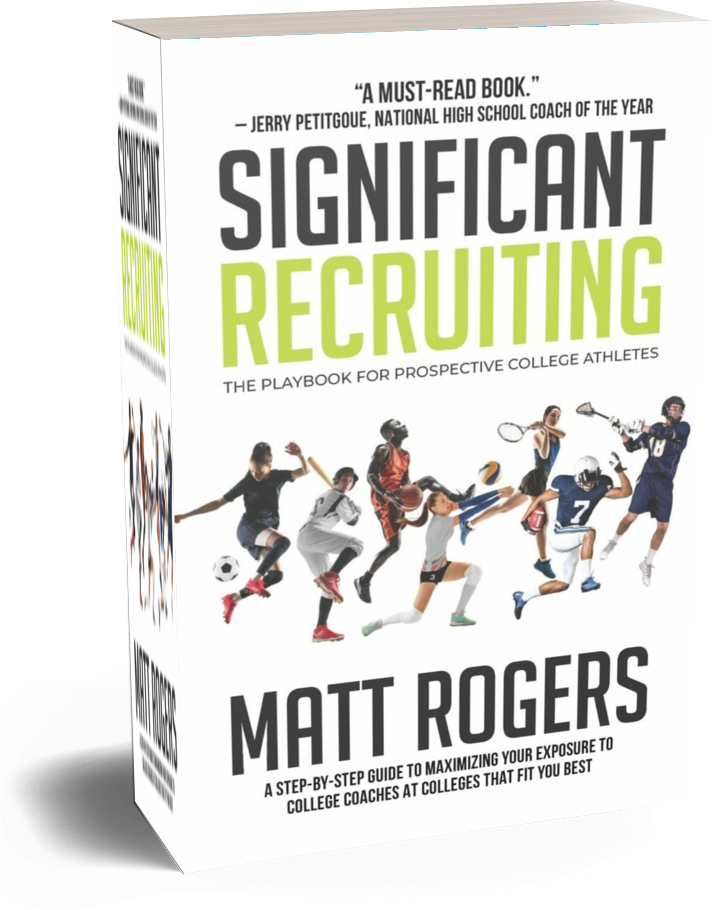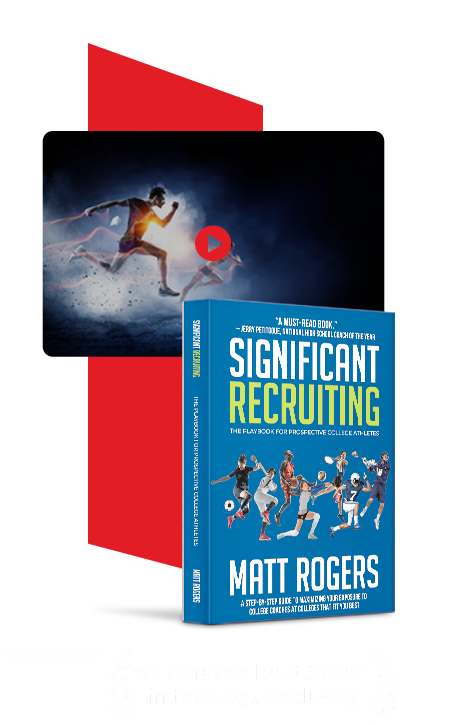“Without strategy, execution is aimless. Without execution, strategy is useless.” – Morris Chang, CEO of TSMC
I am presently working with 2 dynamic junior recruits. They both are State Champions. Both are multi-sport All-Conference athletes. Both are on track to be Valedictorians at their respective high schools. Those are all great things, but what really makes these two kids special is their character. They are humble. They are remarkably hard-working and resilient. They are generous. They are tremendous human beings. They are the types of young adults (they both have earned that moniker from me) that I hope my daughter and son will be become.
Nevertheless, they are very typical teenagers in regard to how they perceive recruitment. They both get caught up and excited when college coaches randomly contact them. Like most kids, they get excited when a college coach expresses any interest in their ability and character and grades. There is nothing wrong with that AT ALL. However, when you have all the characteristics that I described above, many coaches are going to find you and want to talk to you about their school and their program.
The real issue is that often those schools are not on the student-athlete’s Attack List (or wish list). These non-Attack List schools can be distracting and pull your energy away from the schools that you researched and know fit you very well. Those schools can also decrease your desire to continue to pursue those “better-fit” schools.
I have an offer. I guess I don’t have to keep working so hard to pursue what I really want.
In short, it can be a relief when a coach at a school, not on your list, makes an offer.
Thank heavens! Somebody wants me.
However, that can be a detriment to your recruitment strategy because it can make you give up on pursuing schools that may seem hard or difficult to get into or get recruited by.
This is why it is so important that every family has a strategy and process and are committed to seeing that process through until the end. The best clients I have do not cut corners. They don’t skip steps in the process. They don’t make rash decisions without getting proper answers to all of their questions.
A huge part of the process that I take families through is spending a few weeks (4 30-minute sessions) to prepare the student athlete to (1) build their messaging…Who are they?…Who do they want to be?…What are they looking for in a college?…What are there goals for the future?; (2) Research and create a true attack list of schools that fit them academically, geographically, socially, financially, and athletically; (3) Learn how to email and call all of the coaches on their list to introduce themselves.
We put a lot of time into learning how to do those three things the right way before we ever begin to execute the strategy. I want each student-athlete confident about their personal process before we share it with college coaches.
There are many educational tools and recruiting services out there that will express the same message as I have just shared above. Where most of these services and tools fail families is when they don’t do an appropriate job of explaining the goals of that strategy.
I want every student-athlete and parent to understand that we are not introducing ourselves to college coaches to just hope something good comes from it. We are actually looking for 3 very specific outcomes:
- We want honest feedback from college coaches, so we can better understand our recruit’s value.
- If they are NOT interested, we now know we can put our energy and time into other schools.
- If they are interested, we just opened the eyes of a college coach who was not aware of our recruit and now wants to pursue them and potentially offer them.
The key is understanding that all 3 of those outcomes are a victory! If you are going to introduce yourself to a college coach, it is important that resilience and determination is a part of that strategy. We continue to follow-up with a coach or program until they put themselves into 1 of those 3 categories.
That doesn’t mean you call and email every day. It does mean that you may follow-up a voice mail you left for a coach last week with another one a week later that starts “Hey Coach, this is [your name] again. I sent you an email and left you a voice mail last week, and I am calling to confirm you received it.”
How would you feel if a student-athlete emailed and called you, and you did not respond? Guilty, you say? Yep. These coaches feel the same way, and often, that second phone call will usually lead to some level of return communication, and we are 1-step closer to accomplishing 1 of our 3 goals in our strategy.
Strategy + Execution + Follow-up = Significance!
Just remember the words at the top of the page, “Without strategy, execution is aimless. Without execution, strategy is useless.” It is a brilliant reminder for every recruit and family!
Enjoying these blogs? Want to schedule a free 30-minute coaching assessment with Coach Rogers? You can do so here: https://www.significantcoaching.net/
Interested in Coach Rogers’ Book on College Recruiting? You can find it here: https://bit.ly/Matt-Rogers-Significant-Recruiting-Amazon






